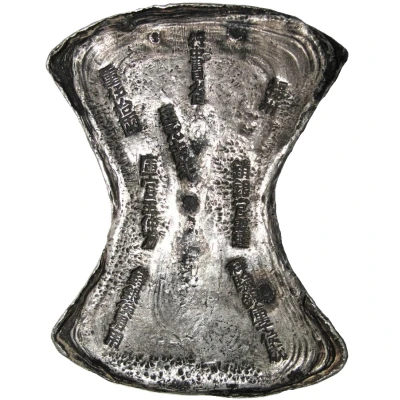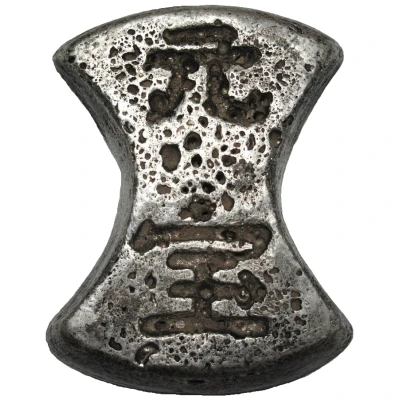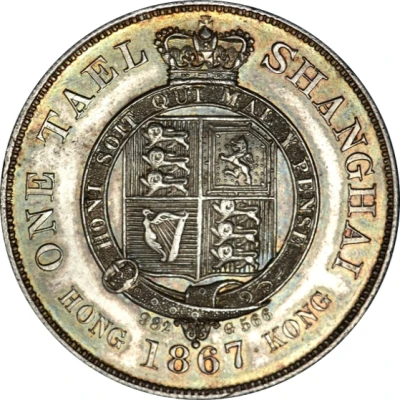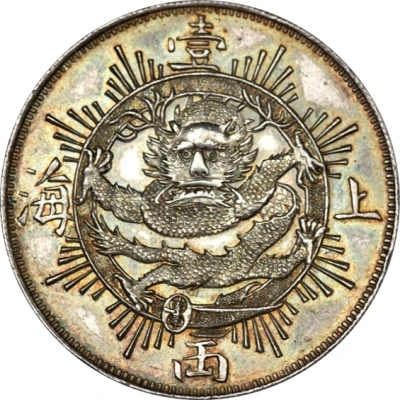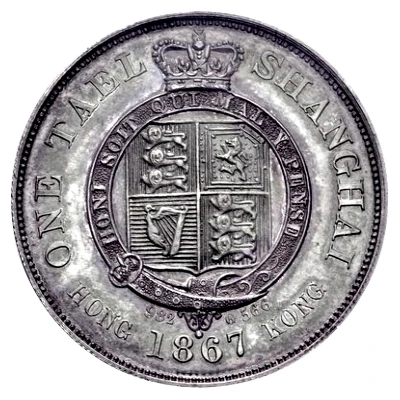
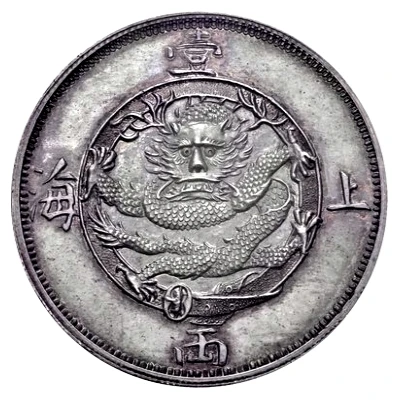

© Classical Numismatic Gallery
1 Tael Pattern; Hong Kong Mint; without rays
1867 year| Silver (.982) | 36.68 g | 39 mm |
| Issuer | Empire of China |
|---|---|
| Emperor | Qing dynasty › Tongzhi (同治帝) (1861-1875) |
| Type | Pattern |
| Year | 1867 |
| Value | 1 Tael |
| Currency | Shanghai Tael (1867) |
| Composition | Silver (.982) |
| Weight | 36.68 g |
| Diameter | 39 mm |
| Thickness | 3 mm |
| Shape | Round |
| Technique | Milled |
| Orientation | Medal alignment ↑↑ |
| Demonetized | Yes |
| Updated | 2024-10-04 |
| Numista | N#243332 |
|---|---|
| Rarity index | 78% |
Reverse
Dragon within circle surrounded by four Chinese ideograms read top to bottom, right to left.
Script: Chinese (traditional, regular script)
Lettering:
壹
海 上
両
Translation:
Yi Liang Shang Hai
1 Tael / Shanghai
Edge
Reeded.
Comment
Only 2 to 3 examples are known of each type.This was an attempt at a unified coinage throughout China, proposed by the Central Government in Peking. At the time, Shanghai did not have a mint, and Hong Kong recently opened their own, so that mint was commissioned to strike these piece. However, with too many British overtones (and with the British being unpopular due to the Opium Wars), this design was rejected, and most patterns were melted.
Krause lists this under Hong Kong; however, Hong Kong was just the mint.
Interesting fact
The Pattern 1 Tael coin was designed by the Hong Kong Mint in 1867, during the reign of the Qing dynasty's Tongzhi Emperor. It features a unique combination of traditional Chinese and Western design elements, with a dragon on one side and a crowned bust of the emperor on the other. This blending of styles was a deliberate choice by the mint to showcase China's willingness to engage with the global economy while still maintaining its cultural heritage.
